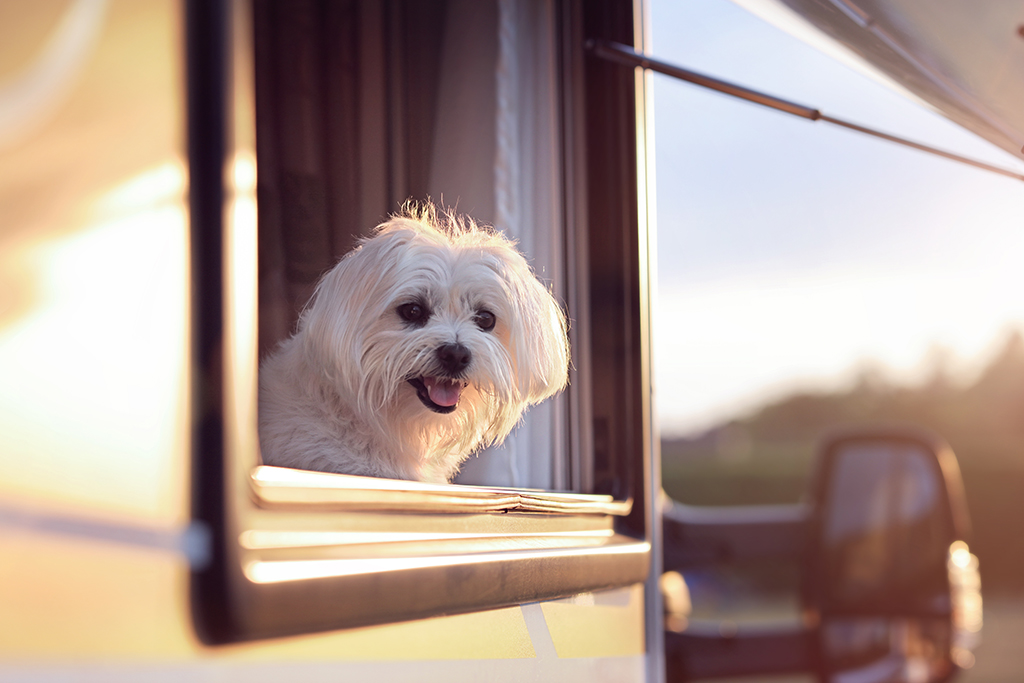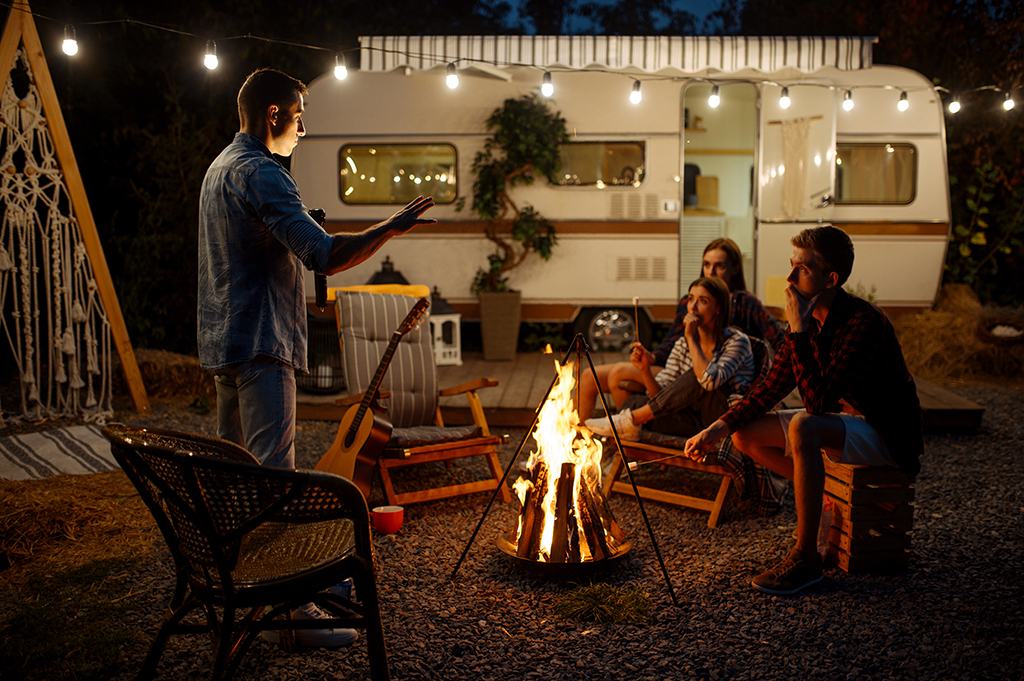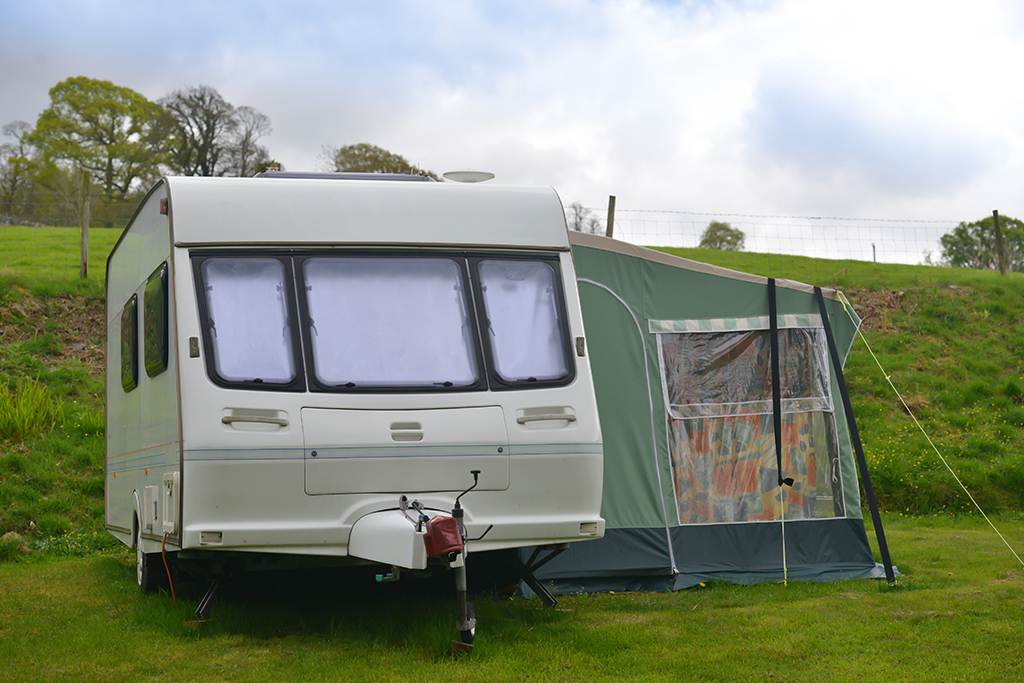
Anyone who owns a caravan knows the freedom of being able to head off whenever you feel like it, in your own little portable holiday home. You have everything you need, right there in your caravan without having to cram it all into the car; we all remember family holidays as a child, wedged into a car surrounded by our siblings and piles of bedding.
But apart from being able to take all your necessities in your caravan, one thing people often ask is ‘are passengers allowed in a caravan that’s being towed?’ Surely that makes more sense than cramming everyone into the car? There’s plenty of room in the caravan and comfortable seats, so why not? We thought we’d take a look at this and explain exactly why this is a bad idea.
Can You Travel In A Caravan Being Towed?
The short answer is no, you can’t. It’s illegal to tow a caravan with anyone inside. Caravans aren’t built to withstand significant force and are relatively flimsy compared to cars. So, if they’re involved in a crash, turn on their side, or get rear-ended it could have serious consequences, particularly as they’re not fitted with crash-tested seats, seatbelts or airbags.
It’s also important that your caravan is stable while being towed, so any shift in weight could affect the balance and cause an accident.
What About Pets?
While it is legal in the UK for animals to travel in the back of a caravan while it’s being towed, you might want to give this careful thought. Smaller pets, including cats and small dogs, could be fine, but larger dogs could alter the weight distribution as much as a person, which will affect the stability; they could also get hurt!
They might get very frightened and maybe panic; it’s much better for their well-being to have them safely restrained in the car with you and not traveling in the caravan.

Would It Affect Insurance?
As it’s illegal to carry passengers in your caravan while towing it, you may not be insured and this may invalidate your car insurance. While there is no legal requirement to have insurance for touring caravans, if the unexpected were to happen having the right insurance could help save the day.
Tips To Keep Your Caravan Balanced While Towing
Making sure your caravan is balanced when you’re towing it will help keep it level and stable; this means that it won’t wobble as much, and you could reduce the risk of your caravan snaking. It will also help keep the caravan in good condition by reducing wear on the tyres, which is just one of many caravan tyre safety tips.
The key to maintaining a stable caravan is to distribute the weight evenly between the front and back; heavy items should be loaded low down and over the axle in the middle of the caravan, with mid-weight items equally distributed throughout the caravan.
Remember that the cupboards etc might not be evenly spaced out. Try to keep your driving smooth and avoid accelerating/braking suddenly, and take corners slowly!

Other Caravan Safety Tips
You want to get to your destination safely and keep everyone else on the roads safe too, so here are some tips:
- Drive in a lower gear than you would if you weren’t towing a caravan and check your speed; remember that acceleration will be slower, and you’ll need more space when overtaking.
- Check your insurance to make sure you’re covered if the unexpected were to happen.
- Some people recommend making sure all the tanks are full when towing your caravan; driving with a full tank of water could help keep it stable, but bear in mind it might also affect fuel consumption too.
- Stabilisers could help, just make sure they’re fitted by a professional.
- A well-fitted towbar is vital as it’s the main connection between your car and your caravan.
- Have your brakes checked regularly.
- Check all your lights are working before setting off.
- Check the suspension of both your car and your caravan; your caravan should be level, or even slightly nose down.
- You are legally required to fit a safety device – a breakaway cable – to your caravan; this will apply the caravan brakes in the unlikely event that your caravan becomes unhitched from your towing vehicle. Read our guide to breakaway cables for more information.
- When towing a caravan you need to have mirrors that give you a good view of the rear of your vehicle, and down the sides of your caravan. If your caravan obstructs the view from your rear view mirror, or is wider than your towing vehicle, then you’ll need additional mirrors; read our blog to learn the importance of caravan towing mirrors.
When you’re heading off in your caravan it might be tempting to get a group of you together for a road trip, and having people travelling in the caravan might seem like a great alternative to cramming them in a car or having lots of vehicles in convoy. But it’s really not worth it; it’s simply not safe as well as being illegal.
When it comes to safety, you might want to look at insurance and the key is to find a policy that strikes the right balance between offering the benefits you need, whilst still being affordable. Check out our website for more information and to get a free, no-strings quote, and find out how you can tweak your policy with a choice of Optional Benefits to make sure you drive away with the cover that’s right for you.
All content provided on this blog is for informational purposes only. We make no representations as to the accuracy or completeness of any information on this site or found by following any link on this site. We will not be liable for any errors or omissions in this information nor for the availability of this information. We will not be liable for any loss, injury, or damage arising from the display or use of this information. This policy is subject to change at any time.
We offer a variety of cover levels, so please check the policy cover suits your needs before purchasing. For your protection, please ensure you read the Insurance Product Information Document (IPID) and policy wording, for information on policy exclusions and limitations.


